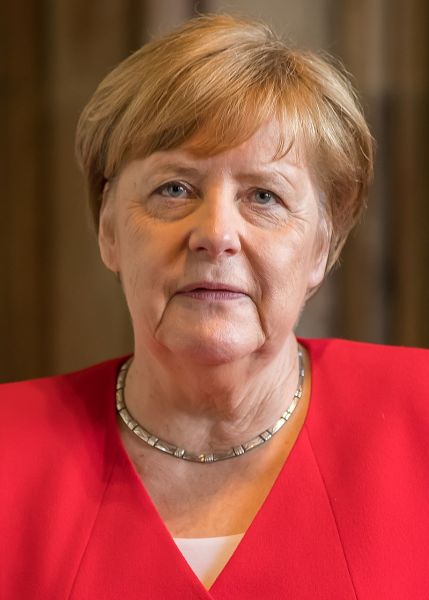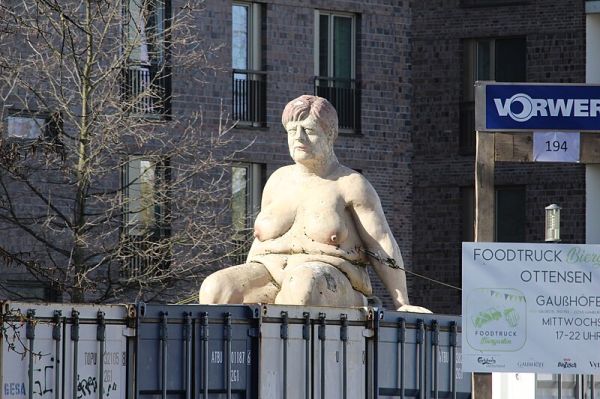Angela Merkel as Earth Mother
Angela Merkel as Earth-Mother
During her years as German Chancellor, Merkel's public activities and demeanor earned her the nickname "Mutti", the informal German term for "Mother"—like calling her "Mama". That makes her a sort of earth-mother figure in German culture. Wikipedia states that Merkel has received at least 21 "Verdienstorden" (recognition of achievement) from different nations, as well as numerous citations from private organizations.
So much recognition, however, can seldom go unchallenged. German journalists have criticized her arbitrary decision to allow thousands of immigrants to settle in Germany. Her bland presumption is that Germany has tackled problems before: "Wir schaffen das," or "We can handle it."—belied the enormity of the task, a fact she should have known from the start.
The handling of so many non-German-speaking, non-Christian peoples challenged German efforts to incorporate them. Germany's bureaucracy, its tax-paying public, and self-definition, not to mention the logistics, never had it so rough. Germany has paid a lot for Merkel's Earth-Mother status—too much, if you ask me. No other event in Germany has done so much to fuel the rise of the extremist political parties, the Alternative for Germany (AfD) on the Right, and the Leftist Party (die Linke) on the Left.
But even Germans who like Merkel and support her work believe the adulation of Merkel has gone too far. This piece of art-work appeared in a park in Hamburg, Merkel's birthplace, as if to dispel her earth-mother pretensions. She is hardly "Gaia", just another well-fed Westerner. Note how the cables stabilize the art-work. Hamburg city authorities may have placed it in a dumpster to cart it away, over worries that it goes too far for decency. Besides that, the face of the statue accentuates her dour, phlegmatic expression.
Also, most informed Germans recognize Merkel's personal limitations. Americans may not; but if they read the material from Wikileaks (confidential e-mails and posts from the various diplomatic out-stations, compiled by Julian Assange), they will learn a lot about Merkel. Philip Murphy, the American ambassador in Berlin summed up those limits in his cables to Secretary of State Hillary Clinton in 2009.
Ambassador Murphy decided he needed a professional analysis of Merkel. He turned it over to his "charges d'affaires" John Koenig. In an embassy, the charges d'affaires typically functions as the personal deputy of the ambassador. He handles a lot of the day-to-day work of the embassy and can stand-in for the ambassador, in his absence. Koenig compiled a "Psychogramm", a psychological profile of Merkel, and Julian Assange leaked the results to the world-press:
Merkel works methodically, thinks rationally about her work, and is open to pragmatic solutions. Put under pressure, she can turn stubborn, but she is risk-averse and seldom creative in her thought processes. She is, at best, a cautious ally of America.
Some of these traits came into play two years later when Merkel overreacted to the explosion at Japan's nuclear-power-plant during the 2011 earthquake. She shut down all of Germany's nuclear-power plants, after she had already set a date for restricting the burning of coal. Average Germans worried that they would not have enough heat to get through the cold German Winter.
In spite of the positive acclaim that she has received in the media and from statesmen of different nations during her terms in office, I believe that future historians will judge Merkel more severely than the present ones have. In her role as World Earth-Mother, she has neglected her responsibilities as the leader of Germany.
Finally, Merkel has no children of her own. This might explain why she does not think creatively. Since she has opted out of the gene-pool, she has no real reason to worry about the future. She has no hostages to fortune—her Earth-Mother status notwithstanding. Scientists who have studied laboratory-rats solving problems in mazes say that mother-rats perform creatively than childless rats, if they have to provide for their young.



